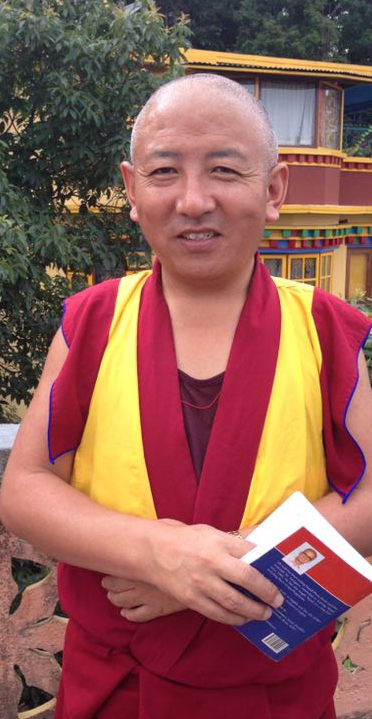
The Ponlop of Triten Norbutse monastery, Tsangpa Tendzin Rinpoche, gives teachings on the Nine Ways of Bön, and on the ninth an highest way, Dzogchen, in particular, in Yeshe Sal Ling on the weekend of May 25-26, 2019.
The Nine Ways of Bön are divided into the four lower ways of "cause", useful in this life, but not capable of providing an escape from it towards Buddhahood, and the five higher ways of "result", true spiritual paths leading to Buddhahood.
Regarding the four ways of cause (phonetically rendered according to Kham pronunciation), the first one, Tza-Shen, comprises oracles (mo), astrology (tsi), short rituals (to), and medicine (djae). The second way, Nang-Shen, contains longer rituals, and is divided into the sections: white water, black water, Phän-Yul (containing ransom rituals) and Pön-See (containing long-life rituals). The third way, Thrül-Shen, contains rituals for the dead, and the fourth way, Sri-Shen, soul-retrieval rituals (la-koug).
Regarding the ways of result, the fifth way, Gen-Nyän, is a Sutric vehicle for virtuous laypersons, the sixth way, Drang-Song, also belongs to Sutra and is the way of monks and nuns; the seventh and eighth ways belong to Tantra: A-kar, the way of the white A (containing the Ma Gyud), and Ye-Shen, the way of the primordial Shen (containing cycles of Drenpa-Namkha, and Khandro Drubkhor). Finally, the ninth and highest way of Bön is Dzogchen.
After a condensed survey of the Nine Ways of Bön, Rinpoche will give a short introduction to Dzogchen. Unlike the other eight ways, Dzogchen is not culture specific, and, therefore, more accessible for non-Tibetans than the other ways.
Dzogchen's apparent simplicity and directness does not prevent it from being very hard to practice. So, even though there is only one Dzogchen, there are many ways of introduction to it and many different hints and tricks for entering into the ever present but often elusive state of Dzogchen. Ponlop Tsangpa Rinpoche will teach us his personal approach and the methods he has found most useful. The equanimity that Ponlop Tsangpa Rinpoche projects wherever he goes makes it particularly interesting to hear his advice on how to attain it.
Prerequisites: New students are welcome to join - there are no formal prerequisites.
Tentative schedule: